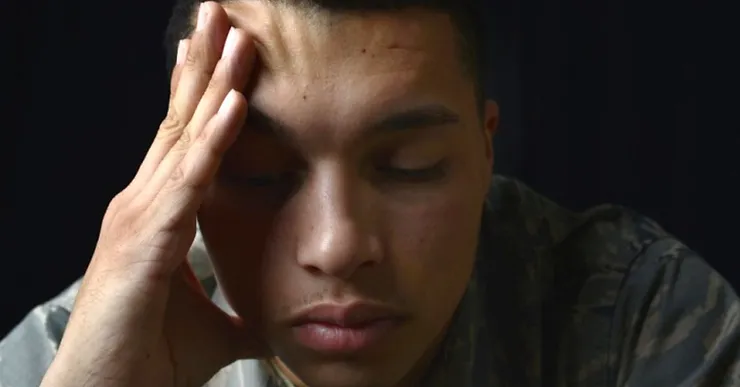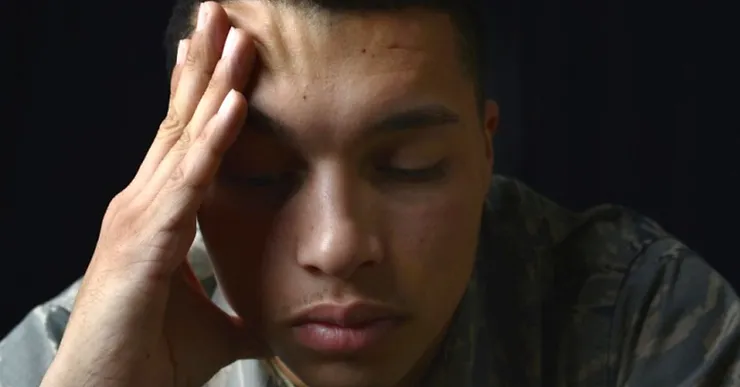A Big Challenge For Society
- A good friend struggling for getting admission into professional courses attempts suicide, a case of neglected depression.
- Senior citizen struggling to memorize home address, finally brought into a nearby police station, a case of Alzheimer’s disease.
- Small fights between kids concluded with a serious injury to one of them due to uncontrolled, extreme anger, a case of behavioral problems in kids.

- Stress at job places, depression, anxiety during educational ages, bad relationships, money vs need struggles and its stress, postpartum depression, menopausal depression, loneliness, etc are common invisible impact factors observed everywhere these days. These have increased in manifolds after the pandemic period.
According to Ayurveda, health is a fine balance of all factors including physical, mental, and spiritual health. But all of the above stress factors impact mental health the most.
More to that, the stigma associated with mental health problems is a much bigger obstacle in treating mental health disorders.
Physical and psychological health are two sides of the same coin which always have interlinked impacts on each other. But the picture related to psychological health awareness, treatment and education are much different. According to Ayurveda, imbalances in Rajas and Tamas Gunas of Mana lead to mental illness. This imbalance can be corrected with proper lifestyle modifications. Assurance or counseling ( Aashwasan chikitsa) is also part of the treatment according to Ayurveda. In fighting against social stigma, this assurance from family, friends, counselors, and society is very important.
• Around 60% of adults with a mental health illness don’t receive care – NAMI
• 98% of people agree that mentally ill people experience stigma and discrimination – Mental Health Foundation
Stigmas in society are commonplace. They can be difficult to dismantle and overcome once they become established over many years. The pressure of mental health stigma can come from family, friends, coworkers, and society on a broader level. It can prevent people living with mental illness from getting help, fitting into society, and leading happy and comfortable lives.
Stigma against a person living with a mental health condition can make their symptoms worse and make it hard to recover. A person may also be less likely to seek help if they live with stigma.
Social isolation, poor housing, unemployment and poverty are all linked to mental ill-health. So stigma and discrimination can trap people in a cycle of illness. The effects of stigma can include social isolation, low self-esteem, hopelessness, shame, avoiding treatment, worsening symptoms, discrimination at work, etc.
In the above scenarios, the role of assurance therapy ( Aashwasan chikitsa ) described by Ayurveda plays a very important role. Proper counseling, motivation, encouragement, and appreciation are essential and very crucial steps in fighting against mental illness.
So on the occasion of “Mental Health Awareness Month”, let’s try to fight against stigma by
1. Understanding basic symptoms of mental illness – Ignorance is very common in such types of illness. Neglecting a single symptom for a long period often creates huge negative impacts. Hence understanding the early symptoms and seeking early help will be the first required step.
2. Helping people to take consultation from doctors at a very early stage – Many times, people find their friends, colleagues, and co-workers showing symptoms related to mental illness but choose to ignore them. It’s everyone’s duty to counsel him/her for early help from professionals.
3. Try to push people to complete their whole treatment until recovery – social stigma is the main reason behind incomplete treatment many times. So pushing people with mental illness for proper and complete treatment is much needed.
4. Educating people about mental health – Educating people from school age about mental illness, its treatment, social stigma and its impact on patients, ways of proper help should be included for better management of illness
So let’s help each other to fight against mental illness and the social stigma associated with it because this stigma is a much bigger obstacle or challenge in the treatment of illness.
‘“ I lie about being sick sometimes, because people understand if you have a cold, but not if you have depression.”
“ People with mental health conditions deserve just as much support and compassion as people with physical health conditions “
Author:
Dr. Gayatri Kulkarni – Mulye (MD Ayurved),
Vaidya Tejaswini Bhale – Borse (Ayurveda Physician),
Shruti Kulkarni (Clinical Nutritionist)
